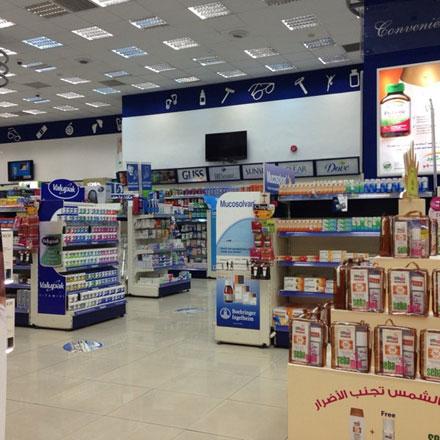You are here
Gov’t halts decision to open investments in pharmacies by sector outsiders
By Ana V. Ibáñez Prieto - Apr 19,2018 - Last updated at Apr 19,2018

Pharmacies are unevenly distributed among the country, according to stakeholders (Photo by Camille Dupire)
AMMAN — The government on Wednesday halted the decision to open the door for investments in pharmacies coming from non-pharmacists and companies owned by professionals out of the field, according to the Jordanian Pharmacists Association (JPhA).
The decision comes in contrast to the draft system for the licensing of pharmaceutical institutions, which is currently under revision by the Legislative Council.
In an interview on Thursday, JPhA President Zeid Kilani told The Jordan Times that the government’s decision builds on a meeting held by the union last Monday, where the representatives provided the Legislative Council with several examples of countries where the legislation on pharmacies does not allow investments from outside the sector.
“It is worth noting that the situation of those countries which have succeeded in allowing such investments is very different from the situation we are experiencing in the Kingdom,” Kilani said, explaining that “while countries such as the US, UK or Netherlands were suffering from a lack of pharmacies, Jordan has one of the highest rate of pharmacies per capita”.
“Pharmacy is a profession, and allowing investments coming from outside the sector would turn it into a business, leading to conflicts of interests and malpractice at the expense of the wellbeing of the Jordanian people,” Kilani stressed.
The JPhA held a second meeting on Thursday in the presence of Health Minister Mahmoud Sheyyab and Minister of Justice Awad Abu Jarad to discuss the need to increase the minimum distance between pharmacies.
“Jordan is currently suffering from clusters of pharmacies concentrated in the same location, while citizens based in other areas have to take transportation from their homes to access a pharmacy,” Kilani told The Jordan Times, stressing that “the minimum distance between pharmacies should be raised to 500 metres if we want all citizens to be able to access the service while preventing competition and malpractice”.
Kilani also noted that the methods used to measure the distance between pharmacies should be changed, as techniques used so far allow “human errors”, while a GPS measurement system between coordinates would be more accurate.
“It is surprising to see the government refusing to adopt this measure, especially considering King Abdullah’s mandate to adopt technology to enhance policies and procedures,” Kilani concluded.
Related Articles
AMMAN — The Jordanian Pharmacists Association (JPhA) on Tuesday decided to cancel the escalation of measures against the recent amendments m
AMMAN — The general assembly at the Jordan Pharmacists Association (JPhA) on Friday formed a crisis management committee in order to address
AMMAN — The Jordan Pharmacists Association (JPhA) on Monday issued a notice, saying that no entity can mandate that individuals insured thro
















